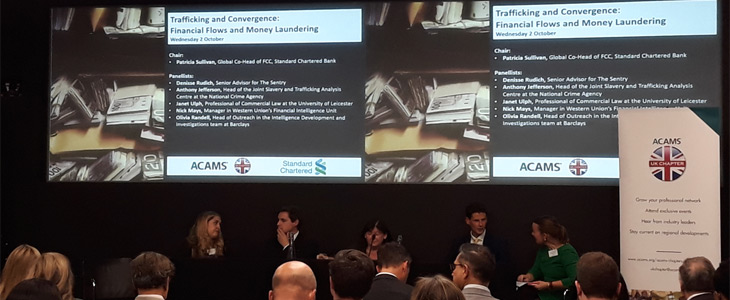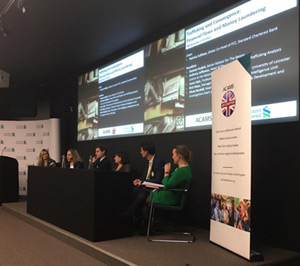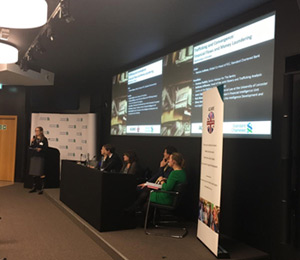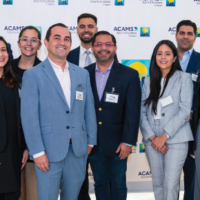
Since 2011, January has been the National Slavery and Human Trafficking Prevention Month in the US, with 11 January designated as the National Human Trafficking Awareness Day. Why does that matter? It is important because trafficking and slavery are not crimes of the past. People are still taken from less prosperous regions to countries like the US and the UK, where they are promised work and a better future. More often than not, the perpetrators lure the victims into “contracts” as traffickers are from the same country or region as their victims and are often part of a larger criminal organisation. Humans, drugs, wildlife and antiquities are moved across borders and the illicit money keeps finding its way back to the perpetrators. Modern slavery is a profitable illegal business that may be funding the criminals but governments, global institutions and the financial industry are fighting against this crime and are trying to understand the flow of criminal funds in order to trace the money back to the perpetrators by following the money!
For the ACAMS United Kingdom Chapter, it was important to include an event that focused on trafficking in its 2019 agenda. On 2 October 2019, the chapter held a well-attended event with Standard Chartered Bank, Trafficking and convergence in the context of financial flows and money laundering. The event could have focused purely on human trafficking or wildlife trafficking, but as the scenarios, red flags and patterns that banks or money transmitters look for in relation to any form of trafficking or smuggling bare very similar traits, it was relevant to put the focus on convergence.

Under the leadership of moderator, Patricia Sullivan, global co-head of FCC at Standard Chartered Bank, the evening focused on how the industry could improve the identification of these criminal networks that often share the same traits when it comes to transportation routes, money flow and shared enablers. The panel covered various angles with representation from the financial industry, law enforcement, a non-government organization (NGO) with focus on corruption and a professor with focus on illicit trade in cultural property.
Without sharing scenarios’ details and rules used for transaction monitoring, the panel shared some insight in relation to red flags for which to watch. The frustration around how challenging it is to be able to identify illicit flow when each institution can only see transactions within their own organisation was discussed. Without the full picture it can be very difficult, if not impossible, to understand whether payments are part of a larger pattern of transactions. The public-private joint effort under the Joint Money Laundering Intelligence Taskforce (JMLIT) in this area was cited as an example of an improvement in sharing intelligence and knowledge around patterns and indicators of financial crime. Public-private cooperation is a term that frequently appears in the many financial crime-related conferences, panel discussions and seminars nowadays—and rightly so. The financial industry detects activity that could assist law enforcement, but without communication, it will stay in the vicious circle of banks and payment institutions reporting clients and exiting relationships without understanding the bigger picture. No financial institution wants to keep a potential criminal on their books and law enforcement needs to understand the patterns of transactional activity, but without a two-way partnership only a limited view is available to each other.

Chapter event attendees further learned that the illicit trade in antiquities and other cultural property has become an increasingly popular way to launder money. Determining the value of such goods is difficult and there is a lack of expertise, which makes it prone to abuse.
It was evident that this was a very engaging event, both for the panel and the audience. Human trafficking and modern slavery are areas that an increasing number of financial institutions are attempting to tackle, which is a very positive sign of increasing public-private cooperation. Less than a month after the ACAMS United Kingdom Chapter held this event, a lorry was discovered in Essex containing the bodies of 39 victims of human trafficking—a poignant reminder of the scale of this problem on our own doorstep.
Katarina Cook, co-chair, ACAMS UK Chapter, Katarina.Cook@brewin.co.uk










